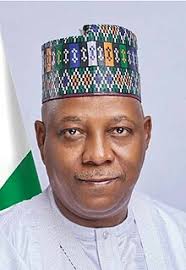The idea of local manufacturing enterprises mass producing vehicles using compressed natural gas as its energy source was discussed during the National Economic Council meeting on Thursday, which was presided over by Vice President Kashim Shettima.
In order to lessen the effects of the government’s subsidy removal policy, the 36 state governors who make up the NEC meeting put the matter on the table for discussion.
Governor of Abia State, Alex Otti, who informed State House Correspondents of this development, stated that officials of the National Automotive Design and Development Council gave open presentations on how the vehicle manufacturing businesses can make it a reality.
Otti said, “As part of the inaugural National Economic Council meeting today, major focus was on the removal of petroleum subsidy and its implied removal of subsidy on foreign exchange, which has led to some convergence of some sort.
“The impact of these two actions definitely is increased prices. And that’s a way to solve the problem and reduce the shock, a presentation was made by the National Automotive Design and Development Council on the great things that are happening in the automotive industry. It was that about six states in the country, including Lagos, Ogun, Anambra, Enugu, Akwa Ibom, Kaduna and Kano have benefited from domestic production of vehicles or assembling of vehicles by Nigerian companies operating in Nigeria.
“These companies include INNOSON, Maikano, Dangote Peugeot, Peugeot automobile of Nigeria, Stallion Hundai, Honda, Elizade/Toyota, Coscharis and Ford, Kojo Motors, Jet Systems motors. At the moment, about 50,000 jobs have been created by this simple action of either assembling vehicles in Nigeria or producing them in Nigeria. A great feat is that some of these companies have gone into the manufacturing or assembly of electric vehicles and vehicles powered by CNG – compressed natural gas. The impact of this is that the pressure on the price of petroleum products particularly PMS will be reduced. The more we use electric vehicles and CNG powered vehicles.
“Some of the decisions that were taken include that legislative support will need to be given to these companies that are doing great things in Nigeria, it is important to underscore the point that former President had made a commitment that by 2060 that Nigeria would join countries that will eliminate fossil fuel powered vehicles and move to electric vehicles in pursuit of the net zero emission that some of the countries in Europe, America and Asia have signed on to.
” So if that must happen, then we need to ramp up the production of electric vehicles and CNG vehicles.
“It is estimated that if we give legislative support to these companies, that about a million jobs from the 50,000 jobs that exist in that industry would be created. It was also suggested that the funding that is required by most of these vehicle manufacturers and assemblers shall be made available to them. So that we begin to reduce the dependence on PMS and other fossil fuel powered vehicles”.

